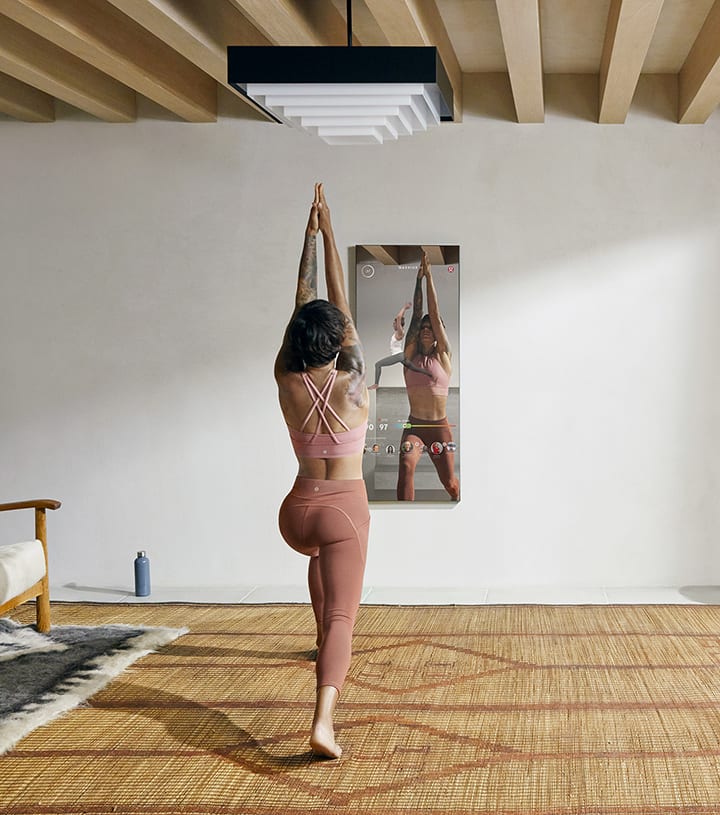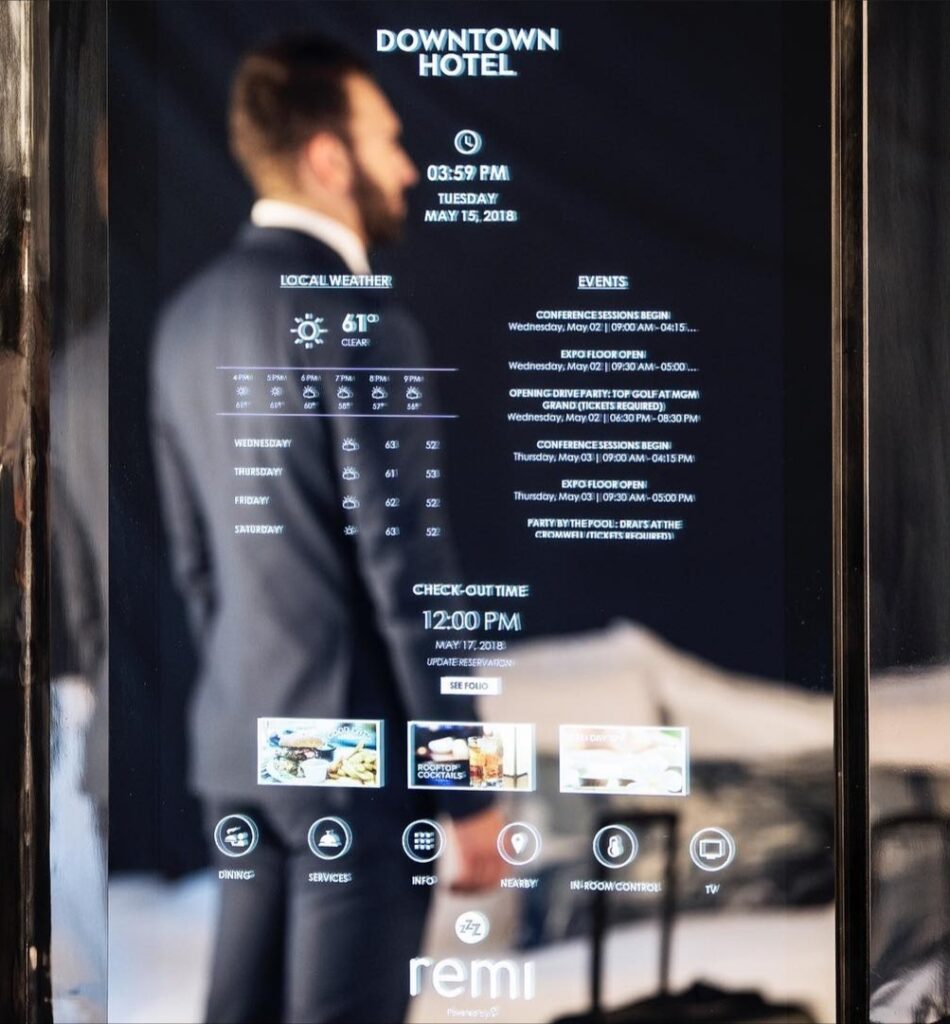It is not the mirror from Snow White and the Seven Dwarfs but a smart model that transforms hotel rooms, enriching customers’ stay and improving the hoteliers’ offer. Imagine lying on the bed in your room and suddenly having a craving for a plate of noodles, or the need to find out some information from reception in a short time, or the need to clean and tidy your room. Several requests for the same solution, because Remi is able to satisfy all of them.
A cool experience
An intelligent and efficient virtual butler who takes care of guests and fulfils their requests. Whatever they may be, because through the touch mirror interface and the dedicated app, Remi can do (almost) anything. Check in before arriving and check in for a flight before leaving the room, book room service, alert a staff member to have clothes washed and ironed. But also getting to know the establishment and reserving a place for an aperitif on the terrace, discovering the surrounding area and the attractions of the city you are visiting, making reservations for a taxi, a table at a restaurant and tickets to the theatre or stadium. And even finish and have purchases made in your room, such as a shirt you need for the afternoon meeting, or lipstick or hair gel you forgot at home.
Before Remi, intelligent but limited mirrors
A host of functions and services at your fingertips, thanks to which Remi is expanding the potential of the smart mirror. The mirror made by the Californian company Mirror Image is not the first mirror designed for hotels, as first came Anna Smart Mirror, a model developed by AirNodes and originally dedicated only to luxury hotels. Rich in sensors, from ambient light to recognition of forehead movements, it is managed using an app and has an integrated LCD screen which, in addition to news, gives the outside temperature in real time and the weather forecast for the day, making it easier to choose suitable clothes.
Many other intelligent options arrived later, but they were always limited in their functions because they were designed for a specific use and purpose. One of the most popular is the model for clothing shop fitting rooms, which uses RFID (Radio-Frequency Identification) technology built into the tags of each product to recognise the clothes the shopper has tried on, making the experience faster and more enjoyable. How? By changing the lighting to see how the dress will look in the light and in the dark, but also by discovering accessories and garments to match, or by looking at the product in other sizes and colours to guess the choice.

Another model is the Mirror, an unoriginal name but effective in its operation, as it can be attached to a wall or placed on the floor and incorporates a 40-inch vertical Full HD display, which reproduces training sessions from professional trainers to help enthusiasts perform their exercises in the right way. Equipped with a front-facing camera (deactivated when not using the device to respect users’ privacy), it allows you to monitor your heart rate thanks to compatibility with the Apple Watch and connection to any Bluetooth heart rate monitor. A hundred courses are available through subscription, with lessons on demand or live streaming of cardio, boxing, yoga, strength sessions and many other activities, as well as playlists curated by music experts that range from different genres to tackle any type of workout. Many reviews from those who have tried it speak in enthusiastic terms, despite the mirror is not touchscreen and must be controlled with a smartphone, because it allows you to recreate a small gym in a corner of the house. So much technology, however, makes the Mirror a purchase not for everyone: it costs £1,495, about €1,770.
Two-way messaging means potential increased revenues for hoteliers
Remi goes far beyond these examples because it combines benefits for everyone: for guests it offers a greater and more complete range of services. For hoteliers, it enables them to speed up processes, increase the technological level of the establishment, increase revenue from customer bookings and purchases, but also partly save on staff costs, as is the case with intelligent door opening locks. Remi is a cloud-based platform that connects directly with the hotel’s Property Management System and provides a two-way exchange between customers and hotel staff. This detail can turn into a huge advantage for hoteliers, as they can use the smart mirror to send guests information about current and upcoming events in the hours and days ahead, as well as real-time promotions on items on sale, such as discounts on certain dishes at lunch and dinner times.

In addition to executing them, the commands requested by customers are stored by Remi, which thus takes less time when it has to replicate an already known action. To manage it remotely, you can choose between the smartphone app and a tablet available in the room, two alternatives to the touch surface for direct control. As for the guests, in addition to sending alerts about the mode and immediate availability of the room, with Remi they can bypass the classic check-in at reception and open the room door using the digital input via Bluetooth, but also use the screen integrated in the mirror to watch on a larger display the content transmitted by their mobile device. Compatible with iOS and Android, Remi is installed by the appropriate team, uses the hotel’s Wi-Fi network and may be interrupted in the event of a lack of connection or a power cut.
Available for any hotel, apart from having to be dusted, Remi does not require any particular maintenance and a quick training guide is all that is needed to use it to the full. Despite its potential, with the pandemic that has brought tourism to a standstill and penalised many hotels by halving turnover and, in the worst cases, shutting down their businesses, while making substantial investments impossible, the project has experienced many difficulties over the last 18 months. The cost of Remi, moreover, varies and depends on the package you intend to buy, starting from an average price of a single unit of around 2,000 euro.



